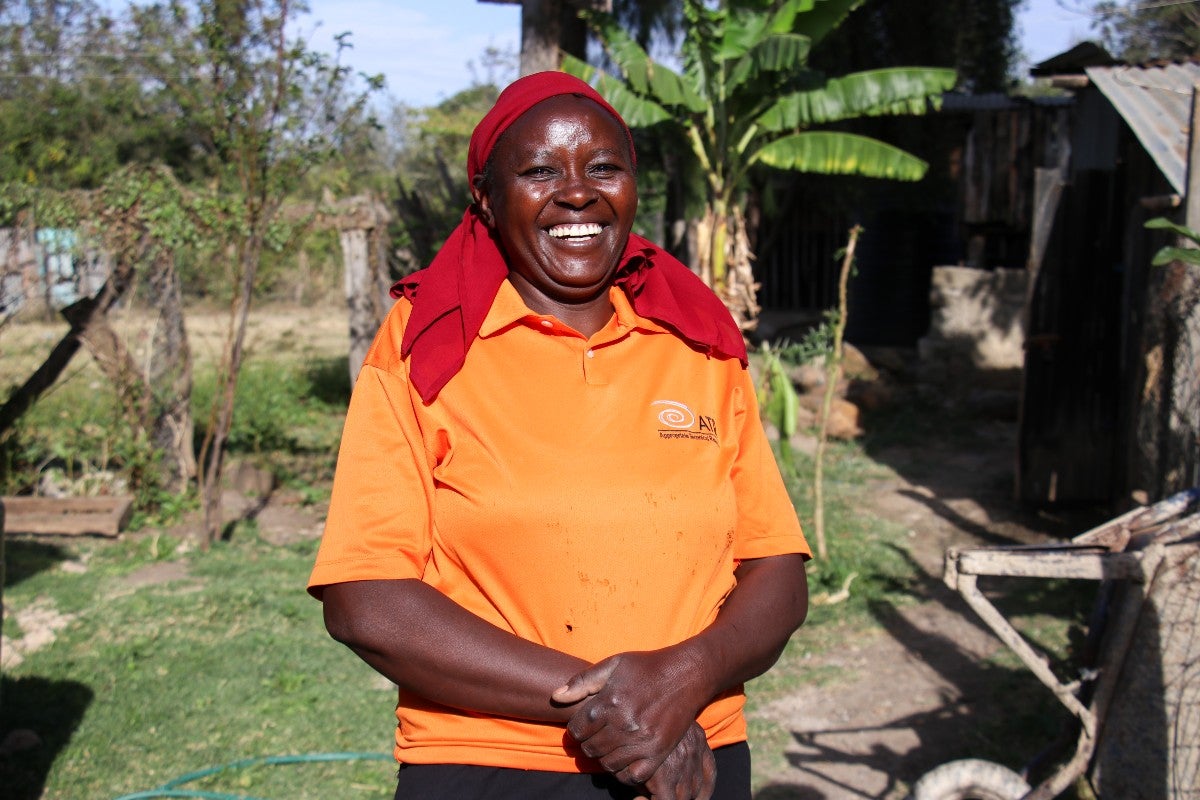From Where I Stand: “The last couple of years have been hard because of drought. The decision was always: spend time farming or take the kids to school.”
Date:
Rahab Kariuki, 50, lives with her husband, two children and three grandchildren. She is receiving training on climate smart approaches to farming through a joint project by UN Women Kenya and the Food and Agriculture Organisation (FAO).

![]() I have been farming since 1995. We used to lease our land for farming activities. I used to grow potato maize and beans. Originally the farm was 1.5 acres but it has shrunk to around 1/8 of an acre. This is because money was tight and we needed to support our kids and take them to school. The land is a joint title in both mine and my husband’s name.
I have been farming since 1995. We used to lease our land for farming activities. I used to grow potato maize and beans. Originally the farm was 1.5 acres but it has shrunk to around 1/8 of an acre. This is because money was tight and we needed to support our kids and take them to school. The land is a joint title in both mine and my husband’s name.
I wanted to learn how to farm in a small area. In the past I was struggling with the size of our original farm. Despite the size it still wasn’t enough to support our family. Initially I used about six types of crops maximum. Now I will be able to use up to about 100 different crops using this vertical system. Initially I wasn’t sure how to access the materials to make it, but now I know where to source them. It seems like an easy process so I should be able to make it. I will still need access to quality seedlings and fertilizer for a healthy crop.
The last couple of years have been hard because of drought. The decision was always: spend time farming or take the kids to school. We had to farm just to feed our children but then we needed an income to get them to school, but we didn’t have time, it was very difficult. I’m looking forward to growing crops like cabbages, spinach and kale to sell at the market and start making money.
I now have a system to store water, I have my house partly guttered. I’m hoping this will provide enough for my family and have excess to sell afterwards.
Rahab used to lease out portions of her 1.5-acre farmland, but financial pressures meant selling off the land, reducing it to around 1/8 of an acre. Through the climate smart agriculture project, supported by the Korean International Cooperation Agency (KOICA) she is now developing new techniques such as vertical gardens, that will reduce time spent in the field and increase her household’s income as well as their food security.